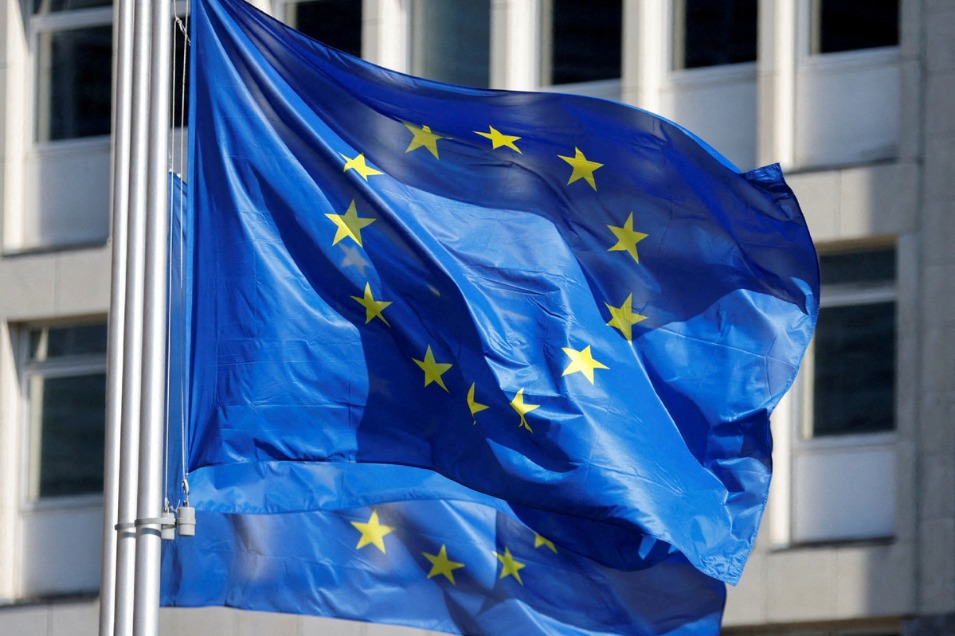The Nairobi International Cultural Festival opens this weekend
By Rading Gerro in Nairobi, Kenya | chinadaily.com.cn | Updated: 2024-06-10 17:26

The ninth edition of the Nairobi International Cultural Festival opened over the weekend in Kenya's capital Nairobi to promote unity and diversity.
Kiprop Langat, director of culture at Nairobi National Museum, said Saturday's festival drew participants and spectators from across the globe, created a unique platform for cultural exchange and understanding.
"The festival showcases the rich tapestry of Kenya's ethnic communities while welcoming international cultures, making it a microcosm of the world's diverse cultural heritage," Langat said at the festival.
The National Museums of Kenya organized the one-day event in collaboration with the Chinese Embassy in Kenya in conjunction with foreign missions in Kenya.
"This festival has significant social, economic, and cultural impacts," Tang Jianjun, the Chinese Embassy in Nairobi cultural counselor, said. "It promotes tolerance and understanding among different communities, helping to bridge ethnic and cultural divides."
The festival's cornerstone was the array of cultural performances, including traditional dances, music, and drama from Kenyan communities.
International artists including dancers and musicians from China, India, Somalia and Costa Rica also performed at the festival, among dancers from other countries.
"We are participating for the third time and this platform has provided a space for our young Somalis in Kenya to connect with their heritage. The festival also enhances Nairobi's reputation as a cultural hub, attracting international attention and fostering cultural diplomacy," said Jabril Ibrahim Abdulle, Somalian ambassador to Kenya.
Charity Kerubo, an attendee who traveled from Kisumu, a city in the western part of Kenya, said: "This is the only opportunity for me to understand other cultural dynamics from other countries and I cannot afford to miss this great event which presents a spectacular opportunity to network and make new friends."
Brian Njuguna, a student of diplomacy from the University of Nairobi, said he likes the diverse culinary varieties shown at the festival most.
"I plan to undertake my Master's degree in diplomacy in China and this event presents me with the opportunity to understand the Chinese culture," he said.
During the festival, The Chinese Embassy in Kenya and the China International Culture Association hosted 'Tea for Harmony', dubbed Yaji Cultural Salon 2024.
"It is well known that in China, tea has a history of thousands of years. The Silk Road is also a tea road. In China, drinking tea is not only a matter of satisfying thirst but also a cultural activity," said Councilor Tang.
The Tea Harmony event also featured lion dance, martial arts and Mongolian dance performances by local college students.
During the festival, Njeru Tea Manufacturers and Zonken Food and Agriculture Ltd, a Chinse tea firm, signed an agreement to improve enhancing tea products in Kenya.
William Zhuo, chairman of Kenya Chinese Chamber of Commerce, said tea masters from China will work hand-in-hand with Njeru Company to create a global black tea that is acceptable in China and other parts of the world.
China is one of the world's leading tea producers and has developed advanced technologies in tea cultivation, processing, and packaging. By transferring these technologies to Kenya, Chinese experts can help improve the quality and efficiency of Kenyan tea production, he said.
Henry Rotich, chairman of the China Alumni Association, said the new deal can serve a catalyst in promoting Kenya's tea competitiveness globally.
"Encouraging Chinese investment in value-addition processes in Kenya can lead to the production of specialty teas, such as black tea, flavored and organic varieties, which fetch higher prices in international markets."
Speaking in China in May, Kenya's Agriculture Cabinet Secretary Mithika Linturi said that Kenya is determined to work with all tea industry stakeholders globally to transform Kenya's tea industry into a more profitable and sustainable one.
The cabinet secretary also said that Kenya being the third-largest tea producer globally after China and India, only earns $ 1.5 billion annually from the sector.
The Nairobi International Cultural Festival was launched a decade ago to foster mutual understanding and respect among citizens of diverse nationalities, races and creeds.























